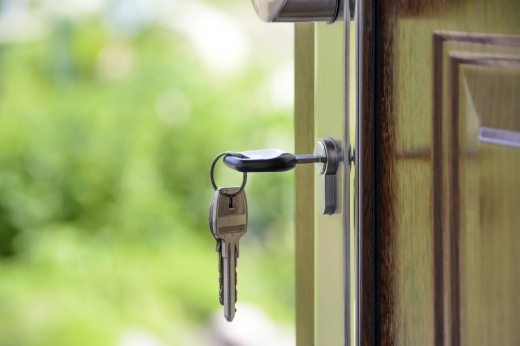Effective Sept. 4, the Centers for Disease Control and Prevention issued its own national eviction moratorium, suggesting putting a hold on evictions could keep people in their homes as a measure to slow the spread of the coronavirus. After multiple extensions, the CDC’s moratorium ended late this summer, according to Texas Legal Services Center.
While evictions notably dropped in Harris County during the pandemic, moratoriums were not consistently enforced, according to reports by data science consulting firm January Advisors. Based on their data, more than 57,000 eviction filings have been made in Harris County since the start of 2020. January Advisors research found the CDC’s moratorium delayed or prevented evictions for 13% of defendants in Harris County.
“The challenge with the eviction moratorium all along has been that people had to meet certain criteria and fill out a moratorium declaration and take that with them to court, and quite a lot of folks didn't know how to do that, didn't have the support they needed to do that or were scared to use it,” said Leah Barton, director of strategic initiatives with the Office of County Administration.
Rising rent
According to ApartmentData.com, Houston-area rental rates dropped in 2020 for the first time in at least 10 years, but as demand has picked up again, rates are up nearly 13% year over year. The average monthly apartment rent in the metro is $1,162 as of October. Apartment rent in Austin has jumped 26% year over year, while Dallas and San Antonio have seen 17% and 14% increases, respectively.
Barton said as housing becomes a larger share of the budget for many families, some may be forced to cut back on other expenses, such as health insurance or food.
“We know that rents have gone up faster than wages, and people were struggling prepandemic,” she said. “As people experienced loss of jobs—or in many cases even if they kept a job, loss of hours—and increase in expenses with kids home and [personal protective equipment] purchase needs, ... they've really felt the squeeze.”
But this “eviction crisis” is not new in Harris County, Barton said, and before the pandemic, the county averaged about 1,500 cases filed weekly with more than 2,000 taking place some weeks. While not all filings are carried out, most of them do result in eviction, she said.
Those most likely to face evictions are those with young children—due to the high cost of child care and the fact that it is more difficult for parents of young children to work—and those living on a fixed income, such as seniors, Barton said.
Local resources
The Houston-Harris County Emergency Rental Assistance Program has pledged or paid over $221 million to more than 57,000 families as of mid-October, which was subsidized by federal funds, Barton said.
The program can cover up to 18 months of rent as far back as April 2020, and up to two months can be allocated to current or future rent to allow tenants time to get back on their feet. Harris County renters whose employment has been negatively affected by COVID-19, are at risk of losing their homes and have household incomes at or below 80% of the area median family income can apply.
Barton said more than 11,000 landlords representing 21,000 properties are enrolled in the program, and those participants have agreed not to evict people who have active rental assistance applications.
But evictions are beginning to trend up again throughout the county. More than 1,200 cases were filed the week of Sept. 20, which was the highest weekly number since before the pandemic. Barton said evictions often hurt tenants long term.
“Having an eviction on your record makes it really hard to get new housing,” Barton said. “Some families are lucky to be able to find a new apartment, but I think that’s not the norm. Many wind up moving in with friends and family. Maybe they’ll end up finding temporary housing in a pay-by-the-week motel. ... Some may wind up living in their car for a while or becoming homeless.”
For more information or to apply for assistance, visit www.houstonharrishelp.org.





